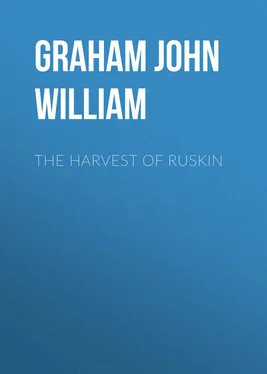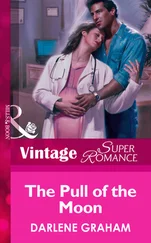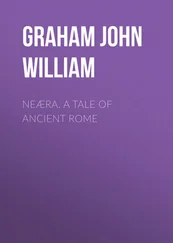John Graham - The Harvest of Ruskin
Здесь есть возможность читать онлайн «John Graham - The Harvest of Ruskin» — ознакомительный отрывок электронной книги совершенно бесплатно, а после прочтения отрывка купить полную версию. В некоторых случаях можно слушать аудио, скачать через торрент в формате fb2 и присутствует краткое содержание. Жанр: literature_19, foreign_antique, foreign_prose, на английском языке. Описание произведения, (предисловие) а так же отзывы посетителей доступны на портале библиотеки ЛибКат.
- Название:The Harvest of Ruskin
- Автор:
- Жанр:
- Год:неизвестен
- ISBN:нет данных
- Рейтинг книги:5 / 5. Голосов: 1
-
Избранное:Добавить в избранное
- Отзывы:
-
Ваша оценка:
- 100
- 1
- 2
- 3
- 4
- 5
The Harvest of Ruskin: краткое содержание, описание и аннотация
Предлагаем к чтению аннотацию, описание, краткое содержание или предисловие (зависит от того, что написал сам автор книги «The Harvest of Ruskin»). Если вы не нашли необходимую информацию о книге — напишите в комментариях, мы постараемся отыскать её.
The Harvest of Ruskin — читать онлайн ознакомительный отрывок
Ниже представлен текст книги, разбитый по страницам. Система сохранения места последней прочитанной страницы, позволяет с удобством читать онлайн бесплатно книгу «The Harvest of Ruskin», без необходимости каждый раз заново искать на чём Вы остановились. Поставьте закладку, и сможете в любой момент перейти на страницу, на которой закончили чтение.
Интервал:
Закладка:
He must know from his own experience the meaning of holiness, thereby gaining a practical knowledge of God. He must, in Pauline words, be crucified with Christ, though he may not care for such an expression; he must preach not himself and please not himself. Such a man John Ruskin was. Among the many wayward and impulsive men who have been “dear to the Muses and to the nymphs not unbeloved,” not all like him have been also masters of themselves, and kept on their foreheads the white stone, with the new name written. Ruskin was himself noble and sweet in his life, a man of sorrows, well acquainted with grief endured in silence, with nothing ignoble in his eighty years of generous charity and lonely service. He had passed, too, through that experience which seems essential to the wielding of spiritual power. He had had his great renunciation, he had heard some hard call, and had obeyed. The prophets have all gone on the Via Crucis: they have all lost their lives that they might find them. As Whittier abandoned a hopeful political career and remained poor till he was sixty that he might help to free the slave, and gained his spiritual power thereby, so Ruskin in 1860 went boldly out to do battle with the Society that loved and honoured him.
Further, such a man must greatly dare. He must face the demon of the study first; then, too probably, the resentment of organized religion. One cannot succeed as a researcher without discovering something new; and that is bound to modify or overthrow something old and established.
Nor can such a man usually present a heart of iron and a front of brass to the darts of controversy. He must be a sensitive man, by the very nature of his research. He may or may not be privileged to feel strong in the strength of his cause; but even if he does the shrinking of the nerves remains. This daring and suffering were pre-eminently the lot of Ruskin; and it was this which finally broke down his mind. “He was beside himself for others’ sakes.” It was the neglect with which the St. George’s Guild and allied reform work were treated by those who were otherwise his friends, which contributed to drive him into inflammation of the brain in 1878, and again several times afterwards. “Wounded in the house of my friends.”
Besides these essential qualifications Ruskin had his very unusual gifts, which it may be long before we find again combined with the religious faculty – his long lifetime free from the need of earning money, his early popularity, his wonderful style, the vantage ground of his Professorial chair, his penetrating mind, his wit and his fire. It may be long before we see his like again.
I am far from claiming infallibility for Ruskin. Infallibility is an out-of-date conception altogether. There is no such thing on earth. To be infallible you must know everything; you must be infinite. The infallibility of a finite creature is an inhuman, even an inorganic conception. Organic life means growth, and growth means imperfection; but growth is Nature’s way of making things. Infallibility is a tyrant born of ecclesiasticism, and bred on human laziness and fear. It has become the attribute of the quack pill, and there let it abide.
But, beyond this safe generality, Ruskin had human weaknesses of an obvious kind. He loved paradox; he played with his thunderbolts a little, and rather liked to shock people. He was a humorist as well as a divine. It is difficult to put down some of his derivations to anything but sheer fooling; a man who will put the English Force and Latin Fors down to the same root, will do anything in that line. Again, when he was in thunderous action he allowed volcanoes of vituperation to erupt, which one would have wished otherwise. He sadly lacked restraint, but, like the strong language of the old Prophets, his had its root in love of man.
We know more of his intimacies and his foibles, which he loves humorously to exaggerate, than are generally given to the public. He has taken means to prevent any artificial pedestal, in idealized aloofness, ever being raised to him. His utter frankness led him to give the public his private accounts, which people generally keep to themselves; and such correspondence as that painful one with Octavia Hill. 2 2 Fors , Letter LXXXVI.
But when the faults of others were in question he was silent as the grave, to his own hurt. He was “kind even to the unthankful and the evil.” As for many of us, how much more vulgar and base would the world have been without that noble and lovely soul. Many are those who owe him an irredeemable debt. His life was not, as he sadly thought, the story of baffled strife. Of him, as of Dr. Arnold, it could be said that not alone was he saved. 3 3 Rugby Chapel , by M. Arnold.
CHAPTER II
THE PILGRIM’S WAY
H AVINGnow stated our conviction that Ruskin was always essentially religious, we will trace the history of his beliefs.
He began life in 1819, under the strong influence of his mother, as a Calvinistic Protestant, of the narrow type then current. The Ruskins were properly Scottish Presbyterians, living in London. A Low Church or Spurgeon’s Tabernacle was equally acceptable. His mother made him read with her daily portions of the Bible, two or three chapters, undiluted and unselected. They accomplished the journey from Genesis to Revelation in about a year, and then began at Genesis again next day, “hard names, numbers, Levitical Law and all.” They went through it at least six times together.
She also taught him, “complete and sure,” twenty-six chapters of the Bible, including the 119th Psalm, and all the Scottish Paraphrases of the Psalms. 4 4 The passages were: Exod. xv, xx; 2 Sam. i. 17; 1 Kings viii; Ps. xxiii, xxxii, xc, xci, ciii, cxii, cxix, cxxxix; Prov. ii, iii, viii, xii; Is. lviii; Matt. v, vi, vii; Acts xxvi; 1 Cor. xiii, xv; James iv; Rev. v, vi. See Præterita for all this.
This did not make him vitally religious; he was not “converted.” The Bible was, for the present, a rather tiresome task, and to chapel he and his father went submissively, feeling their sad inferiority to the mother in these matters. His mother’s creed he dutifully imbibed, without question or strong feeling of any kind. He had the proper antipathy to Rome, and the habit of outward prayer. 5 5 For his actual experience of prayer, see the incident of 1845 in Præterita , vol. ii. pp. 260, 261.
His real religion was born at Friar’s Crag, Derwentwater, at four years old, when he looked with awe into the dark lake over the mossy tree roots, and felt himself in the Presence.
He was, as an only child, a protected treasure, the pride of and a great responsibility to his wealthy parents. He never went to a Public School, and when he went to Oxford to be made into a Bishop his parents came with him, lived in the High, and his mother saw him every day. With them, far into mid-life, he went on all his foreign journeys but two, those of 1845 and 1858. The parental ideas remained potent with him to an extent hardly realizable by this generation, which often finds it so difficult to bring their parents up properly.
His earlier works are written with the questionless devoutness of the untried mind. They were narrow in theology, fiercely Protestant, earnest enough; and on their positive side, still sound and valuable. The first two volumes of Modern Painters , the whole of the Stones of Venice and the Seven Lamps of Architecture , and the Edinburgh Lectures on Architecture and Painting belong to this period. So, broadly, do the Manchester Lectures on the Political Economy of Art in 1857; but they are the herald of the next epoch.
He resisted the new Geology of Lyell, declared indignantly that God had created the Alpine valleys, and put the rivers to flow along them, denying that the rivers had worn their own valleys out. Somewhere in the later fifties we find him scandalized by the statement of Frederick Denison Maurice that Jael’s treacherous murder of Sisera was a wicked deed. The fact that Deborah the Prophetess sang a sacred song over it was enough to justify it to Ruskin, then over thirty-five. 6 6 Præterita , iii. 28.
Интервал:
Закладка:
Похожие книги на «The Harvest of Ruskin»
Представляем Вашему вниманию похожие книги на «The Harvest of Ruskin» списком для выбора. Мы отобрали схожую по названию и смыслу литературу в надежде предоставить читателям больше вариантов отыскать новые, интересные, ещё непрочитанные произведения.
Обсуждение, отзывы о книге «The Harvest of Ruskin» и просто собственные мнения читателей. Оставьте ваши комментарии, напишите, что Вы думаете о произведении, его смысле или главных героях. Укажите что конкретно понравилось, а что нет, и почему Вы так считаете.












